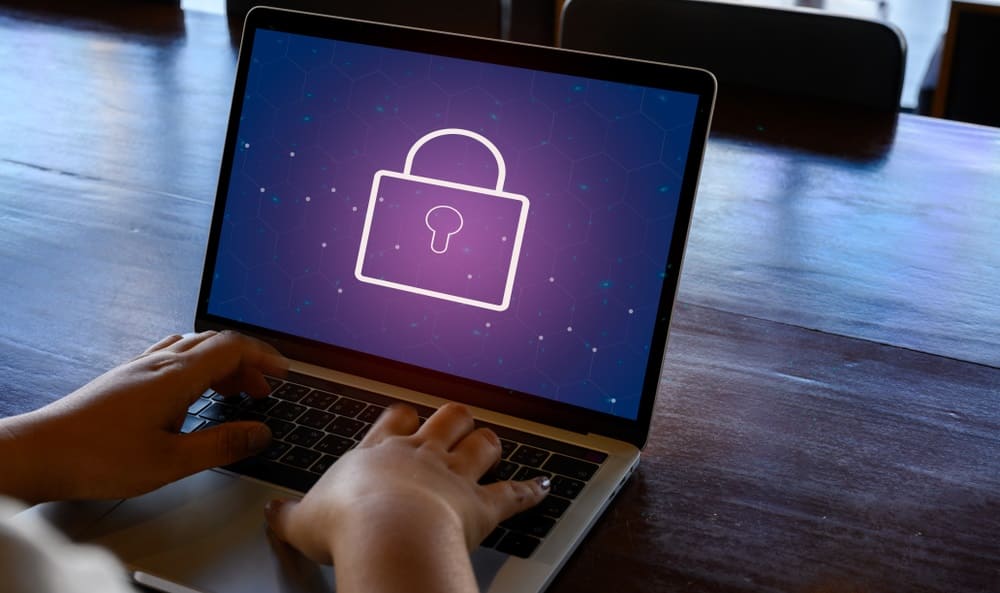With the Covid-19 pandemic causing great pain and difficulty across the world for the last two years, the trend of working from home has become normal for many. Due to this enforced experience, many businesses have realised that remote working is both a cost-effective and efficient way of moving forward.
But how can you make sure your home office is just as secure as the actual office itself? After all, a lot of us are now working from our own laptops, which means we are responsible for a whole load of important data in a way that we never have been before.
So how secure is your laptop and how secure should it be? Here are a few pointers to help you work it all out.
Passwords Are Important
Whilst this first point may seem rather obvious, you’d be surprised to learn how many people still have insecure passwords set up on their laptops. For hackers attempting to break into your hard drive, it is fair to say that *InsertPetNameHere123* is not going to stop them.
Instead, you need a strong and secure password which can be downright impossible to guess. This should include a mix of lowercase and uppercase letters, numbers, and symbols, as well as a minimum length of twelve to fifteen characters. This should be the case for both your computer log-in, as well as alternative passwords for your email and Google documents.
Remember that your password should have no relevance to anything personal. Whilst you may love your dog, having their name as your password is not going to help if you’re being hacked.
Anti-Virus Software Is A Must
The cyber security of your laptop is integral to protecting important company files and information. Investing in anti-virus software can be the best way to fend off any security threats that may come along, as well as suspicious malware which might begin to infect your laptop during the working day.
If you install anti-virus software, you can ensure that your computer is being regularly scanned for these threats, alerting you to suspicious activity, as well as deleting malicious codes as soon as they have been identified.
Laptop Insurance Can Protect You
Since you are working from home, the laptop you own will have to be one of the best on the market to efficiently keep up with new software. In this way, it is important to make sure you are covered if anything goes wrong.
Getting laptop insurance can protect against a variety of things, including theft, vandalism, fire damage or damage from falling objects. As well as this, insurance for renters or homeowners can also cover your laptop as well as a lot of other home possessions, tech or otherwise.
Now that a lot of us are spending way more time at home, it is important to ease anxiety by insuring the things that matter the most to you. That way, if anything goes wrong, you know you have set the plans in place to deal with it.
Keep Your Systems Up To Date
If you are working for a fast-moving and well-connected company, then it is important that you are not left behind. With new operating systems such as 5G fast coming into play, you must ensure to move with the times and keep your own operating system in tune with the rest of the game.
Operating systems and software are regularly updated. If you go into the settings of your laptop, you can change it so that you are being alerted about when these updates are happening. Do not be one of those people who constantly click ‘remind me later’. You will undoubtedly click it a few dozen times over the course of a few months. Instead, you should just take the time to update your systems and make sure you are not left behind.
Two-Factor-Authentication Can Be The Icing On The Cake
Obviously, none of us can be wholly prepared for any malicious attacks on our computer, nor a falling vase from the bookshelf just above our home desk. But it is our responsibility to do everything we can to avert the risks. With two-factor authentication, you can create the perfect final hurdle in your attempt to keep your laptop safe and secure.
Simply install this extra security measure, which makes you verify your identity with a random code every time you log into your online work accounts or emails. Yes, it can be a bit time-consuming, but it is a worthy sacrifice to keep your laptop as protected as possible.

